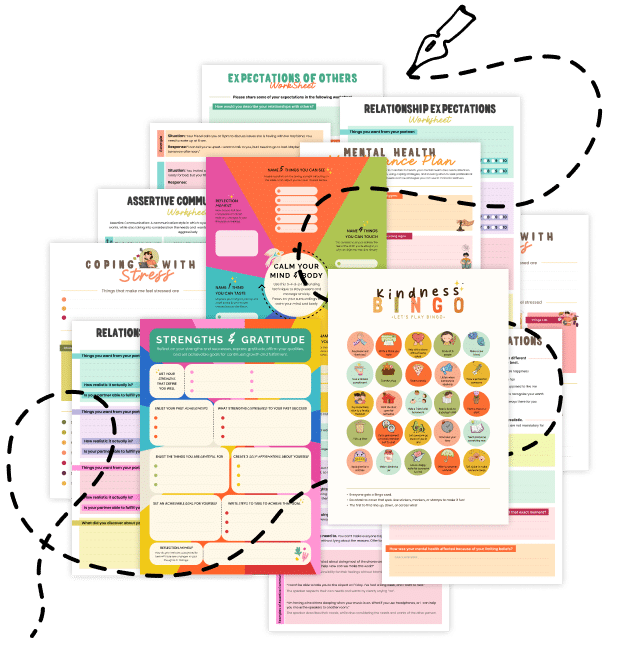20 Things You Should Know About Enclothed Cognition
Discover how the clothes you wear can subtly influence your mindset, performance, and even the way others perceive you. Dive into the fascinating world of Enclothed Cognition—what it is, why it matters, and how to harness its power in daily life.
1. What Is Enclothed Cognition?
Enclothed Cognition is the psychological effect wherein the clothing you wear impacts your self-perception, behavior, and cognitive performance. In simple terms, what you wear can shape how you think and act.
2. The Core Idea of Enclothed Cognition
Research shows that wearing certain outfits—like a lab coat or athletic gear—does more than change how others see you; it changes how you perceive yourself, influencing confidence, attention, and even self-control.
3. Origins of the Term ‘Enclothed Cognition’
The concept gained mainstream attention from a 2012 study by Hajo Adam and Adam Galinsky. They coined “Enclothed Cognition” after finding that participants wearing a doctor’s coat performed better on attention tasks.
4. Symbolic Meaning Matters
It’s not just any coat—it’s the meaning attached to the coat. Wearing a “doctor’s coat” improved attention, but calling the same coat a “painter’s coat” did not yield the same cognitive benefits. The perceived symbolism is key.
5. Boosting Confidence
Dressing for success isn’t just a cliché. Whether it’s a suit for an interview or workout gear at the gym, clothes that represent competence or motivation can genuinely amplify self-assurance and drive.
6. Self-Fulfilling Prophecies
When you dress like a professional, you’re more likely to feel and behave like one. This shifts how you interact with colleagues, how you tackle tasks, and ultimately how others respond to you—reinforcing that initial perception.
7. Implications in the Workplace
From casual Fridays to company uniforms, businesses use attire to shape culture and performance. For example, formal dress might encourage a serious mindset, while relaxed attire can foster creativity—each has its place and purpose.
8. Athletic Performance
Studies suggest that wearing sports apparel can increase stamina or willingness to push harder. This effect is partly because the garment’s symbolism aligns with athletic identity, nudging you to live up to the “fitness” persona.
9. Mood and Emotion
Clothes can also affect mood—think of the boost you get from wearing a favorite outfit. Colors, fit, and style all contribute to how you feel. This mood shift can influence how engaged or social you are in daily interactions.
10. Social Perception
Others judge us quickly based on outfits—sometimes within seconds. Enclothed Cognition is a two-way street: how you dress can prime both your own behavior and others’ expectations of you.
11. Cultural Factors
Different cultures attach various meanings to clothing. A brightly colored robe might signify celebration in one culture but formality in another. Understanding these nuances can enhance the enclothed cognition effect in diverse settings.
12. Uniformity vs. Individuality
Uniforms can unify a team or group under a shared identity (like firefighters, nurses, or soldiers), boosting group cohesion. On the flip side, casual or self-styled attire can foster individuality and personal expression.
13. The Role of Comfort
It’s not all symbolism. Clothes that fit well and feel good prevent distractions. If you’re constantly adjusting an uncomfortable outfit, cognitive resources shift from performance to physical irritation—reducing the enclothed cognition benefits.
14. Dressing for Specific Tasks
People sometimes keep a “focus outfit” for serious work or an “ideas hat” for brainstorming. These ritualistic garments can act as psychological anchors, switching your brain into task-specific mode.
15. Application in Therapy
Some therapists encourage clients to wear confidence-boosting outfits when facing anxiety-triggering events—like public speaking or social gatherings. The clothing serves as a tangible reminder of their capabilities.
16. Children and Role-Play
Kids naturally experiment with enclothed cognition when they dress up as superheroes, doctors, or explorers. This imaginative play fosters a sense of power, curiosity, or nurturing behavior tied to the costume’s symbolism.
17. Influencing Self-Image Over Time
Consistently wearing garments that represent your aspirations—like professional work attire or fitness outfits—can gradually reshape your self-image, reinforcing habits and attitudes aligned with those goals.
18. Digital Enclothed Cognition?
Even in virtual settings—like video calls or VR spaces—our chosen avatar or on-camera outfit can alter self-perception. Feeling “put together” on screen can mirror the effects of wearing empowering attire in person.
19. Balancing Authenticity
While enclothed cognition can be powerful, authenticity matters. Wearing something just because it’s “expected” or “cool” might feel off if it doesn’t align with your personal style. The strongest effects come from genuine confidence in what you wear.
20. Related Topics to Explore
- Naïve Realism: Examine how we often think our perceptions are universal truths—relevant when interpreting attire.
- Emotional Granularity: Fine-tune your emotional states by recognizing subtle shifts prompted by clothing.
- Self-Talk Restructuring: Pair positive self-talk with symbolic attire for a double boost of confidence.
- Task-Specific Anxiety Management: Use enclothed cognition as part of your toolkit to quell fear in challenging scenarios.
Quick Tips to Boost Enclothed Cognition
- Choose Meaningful Outfits: Select clothes that align with how you want to feel or perform—like a “power blazer” or a “creative color palette.”
- Simplify Your Wardrobe: Eliminate items that don’t fit comfortably or authentically. Discomfort distracts from mental clarity.
- Create Dressing Rituals: Start your day by mindfully choosing your outfit. This small ritual can frame your mindset for what’s ahead.
- Experiment and Observe: Try different styles or “costumes” for various tasks (working vs. socializing) and note any shifts in confidence or focus.
- Stay Genuine: Aim for attire that resonates with you—not just fashion trends. Your confidence and comfort will multiply when it feels like “you.”
Enclothed Cognition underscores the subtle power of appearance to shape your thoughts, emotions, and performance. By choosing outfits that reflect and reinforce who you aspire to be, you can tap into a surprisingly effective psychological lever—boosting confidence, creativity, and overall well-being. Share this with friends, coworkers, or family—help them discover how dressing the part can lead to thinking (and feeling) the part, too!


